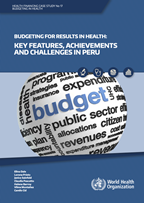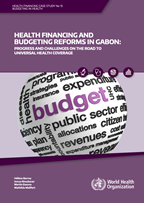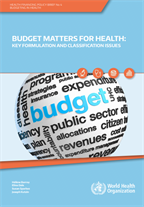Health budget
Raising domestic public funds is essential for universal health coverage (UHC). No country has made significant progress toward UHC without increasing reliance on public revenues. Therefore, domestic tax systems that are essential to support country’s fiscal space expansion are central to the UHC agenda.
While the level of revenues matter, the allocation and use of these revenues are two crucial elements in supporting effective progress toward UHC. Public Financial Management (PFM) systems are key enabling factors to support appropriate formulation, execution and accounting of government expenditure.
In health, countries face challenges at all stages of the PFM cycle. Key questions include:
- How to align budget allocations with sector needs?
- How to ensure effective disbursement?
- How to make the budget system more accountable and transparent?
As part of the Montreux Collaborative Agenda on Fiscal Space, PFM and Health Financing, WHO is supporting countries and partners in fostering dialogue between health and finance authorities, with the aim to strengthen domestic PFM systems and make budget practices more effective toward UHC.
Generally, the key features of a well-functioning budgeting system typically include:
- Multi-year planning and budgeting
- Policy or output-oriented allocation
- Realistic and credible estimates of costs
- Open and transparent consultation processes.
In health, proactive engagement of health ministries in the budgeting process can facilitate alignment of budget allocations with sector priorities, as laid out in national health strategies and plans. The development of multi-year plans and budgets is likely to improve predictability in the sector’s resources. If the health budget is formulated according to sector goals or outputs and the execution rules align with this logic, it will make budgets more responsive to sector needs than if the formulation follows an input-based approach. A quality performance framework of budgets will also facilitate financial and operational accountability in health.








